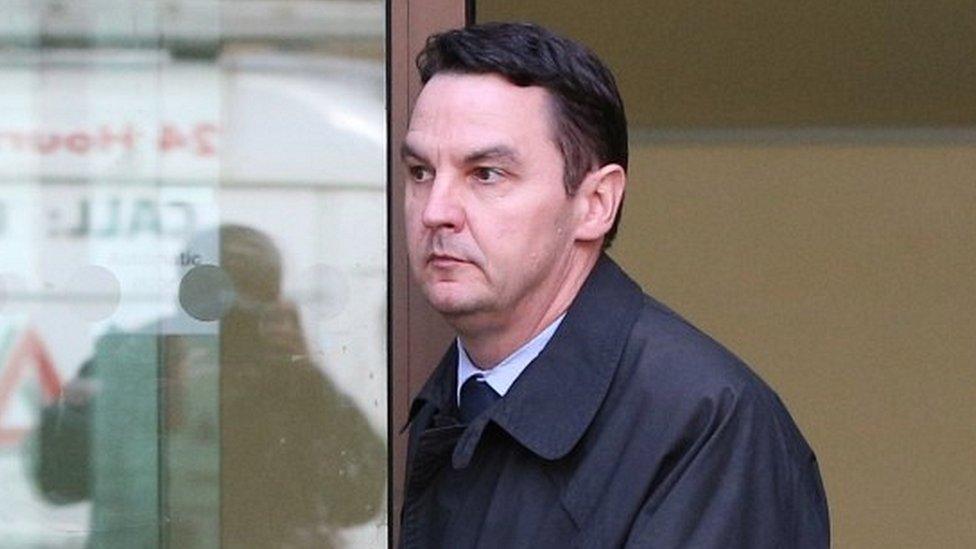Upskirting law: Children among 150 victims, figures show
- Published

Upskirting involves the taking of covert pictures or videos underneath a victim's clothing
Children are among those who reported being a victim of upskirting since a law came into force, figures reveal.
Of the 153 reports made to England and Wales police forces, one victim could have been as young as 10, while a 74-year-old woman reported being targeted.
It comes after Voyeurism (Offences) Act came into force, in April 2019.
Gina Martin, who led the campaign against upskirting, praised the act for bringing perpetrators to justice.
Separate data from the Crown Prosecution Service (CPS) shows 10 men were convicted of 16 offences, in 2019.
The majority of offences were committed in schools, shopping centres and other public places.
The Press Association obtained figures from 35 police forces under Freedom of Information laws.
Upskirting involves the use of a recording device, such as a camera phone, to take explicit images underneath a victim's clothing without permission and often undetected.
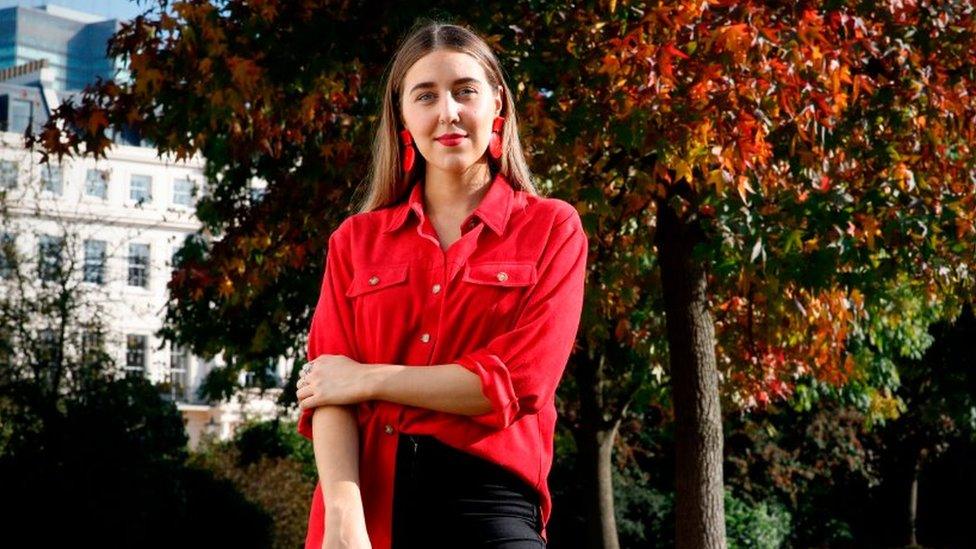
Gina Martin's campaign led to the new law
Victims include the 74-year-old in the Avon and Somerset Police area, as well as a 15-year-old boy in the West Midlands and a 14-year-old girl on a bus, in Sussex.
Hertfordshire Police said one of two upskirting cases in its area involved a 15-year-old boy taking an image of a 15-year-old girl while she was either drunk or asleep, before threatening to circulate the photos on social media.
Dorset Police said the youngest victim reported to them was aged between 10 and 18, but declined to provide further information.
Campaigners previously complained that the lack of a specific legislation left police unsure how to deal with such allegations, with many subsequently going unreported.
Gina Martin campaigned for the law to be changed after a man took a picture up her skirt
There were 94 incidents among 25 police forces in 2018 and 78 between 2015 and 2017.
Since the law came into force, those convicted include paedophile Stuart Bulling, the first person jailed under the new legislation, after he was caught following teenage girls around a supermarket in Lancashire, in September, the CPS said.
Trevor Beasley, 51, was also jailed, for filming under women's skirts in Burgh Heath, Surrey.
He had previously been convicted of upskirting in 2016, under the old charge of outraging public decency.
'Sexual assault'
Under the new law, a conviction at the magistrates' court would carry a sentence of up to one year in prison and/or a fine.
A more serious offence, tried in the crown court, can carry a sentence of up to two years in prison.
The Voyeurism Act also allows upskirting to be treated as a sexual offence and ensure the most serious offenders are placed on the sex offenders register.
Campaigner Ms Martin, who fought for a specific upskirting law after two men who took a picture up her skirt at a festival in 2017 went unpunished, welcomed the statistics.
She said: "The Voyeurism Act only came into use eight months ago and the difference in charges and reporting is already up greatly.
"Upskirting doesn't exist in a vacuum.
"Sexual assault and violence is all linked, and I'm just so happy this law is holding those who perpetrate it accountable."
"He was laughing": Three women tell the BBC's Victoria Derbyshire about their experience of upskirting
Several police forces provided incomplete data meaning it was not possible to establish how many allegations resulted in a criminal charge, a caution, or even a suspect being identified, as well as details about the victim or the location.
However, the data frequently cited "evidential difficulties" preventing cases progressing.
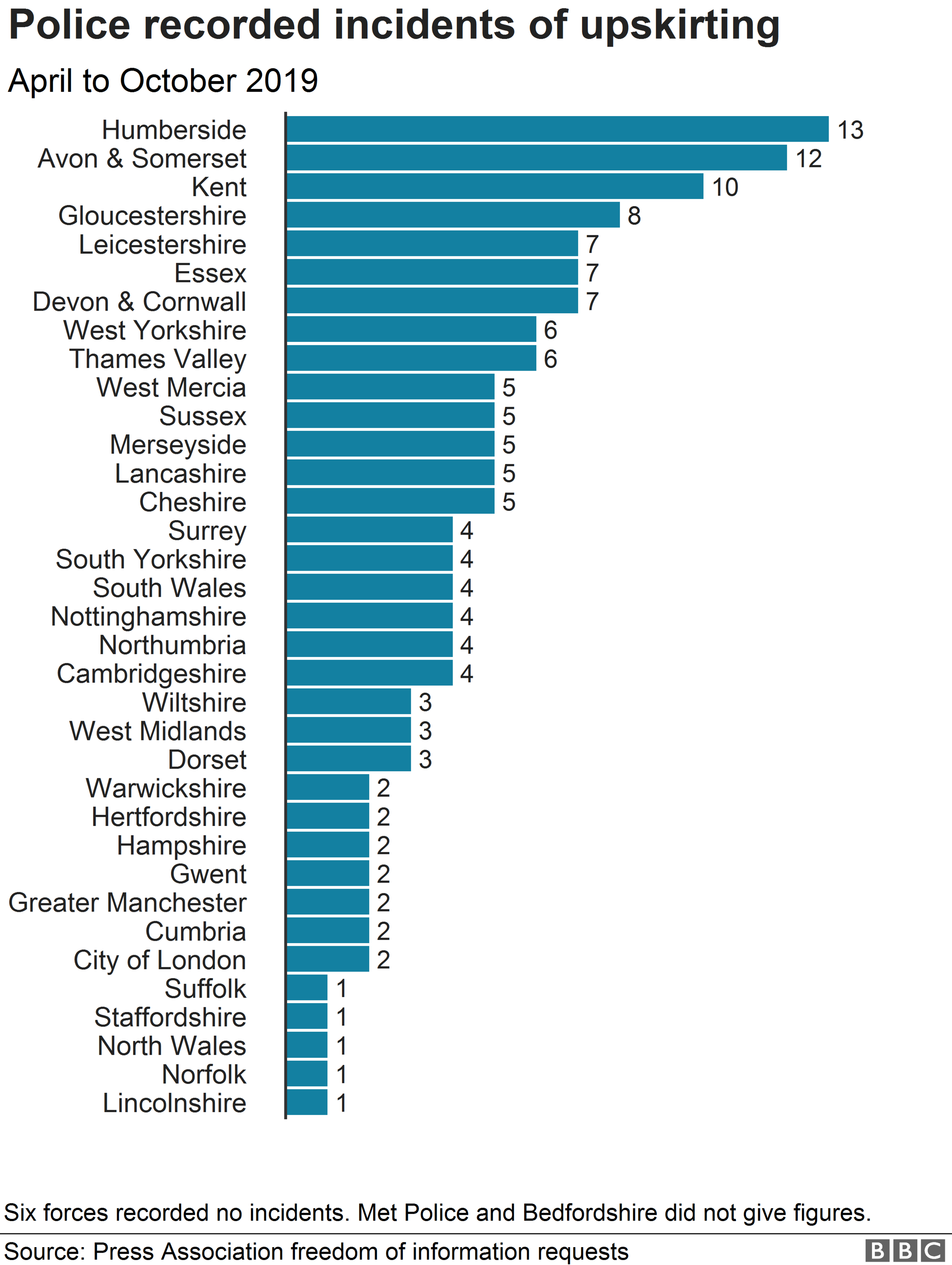
- Published21 April 2019
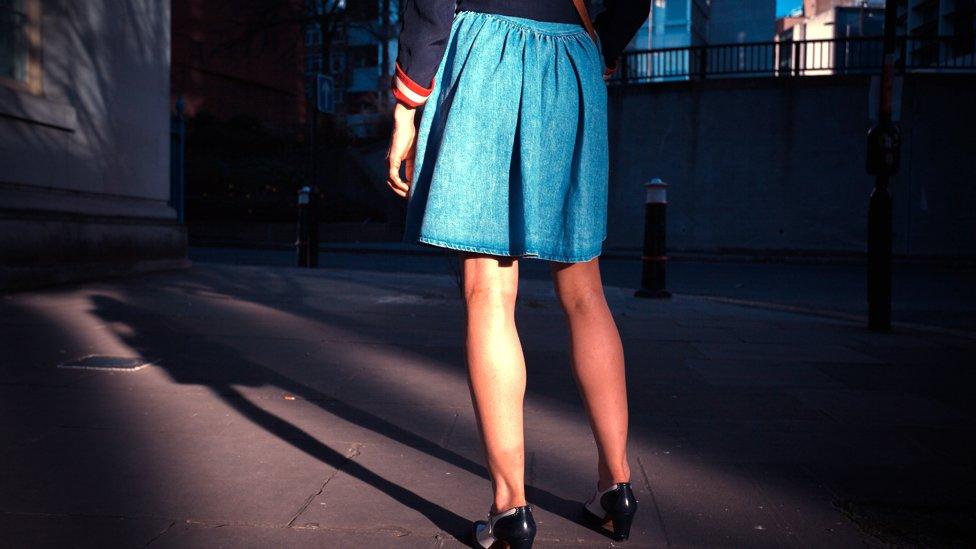
- Published12 April 2019
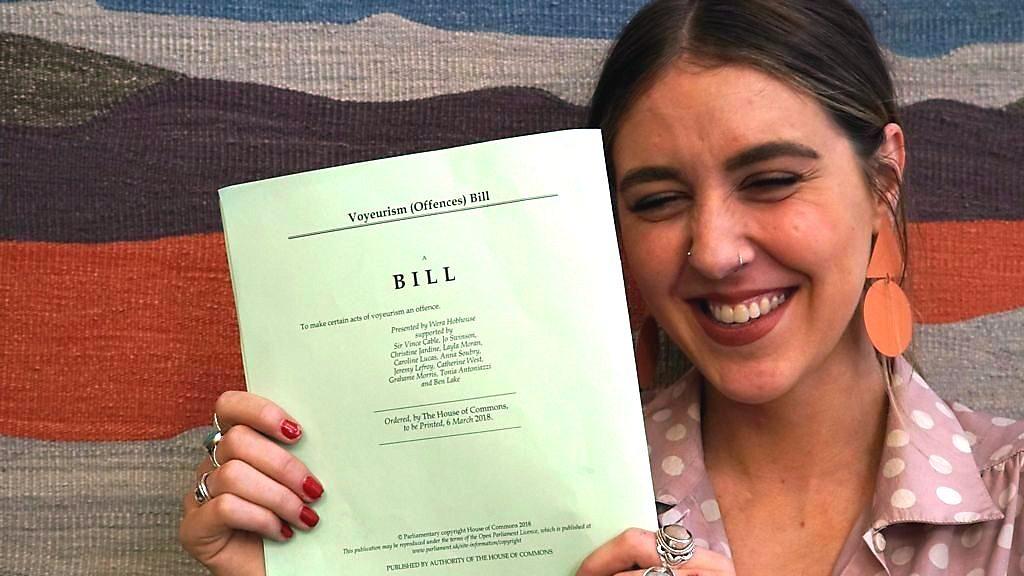
- Published26 September 2019
